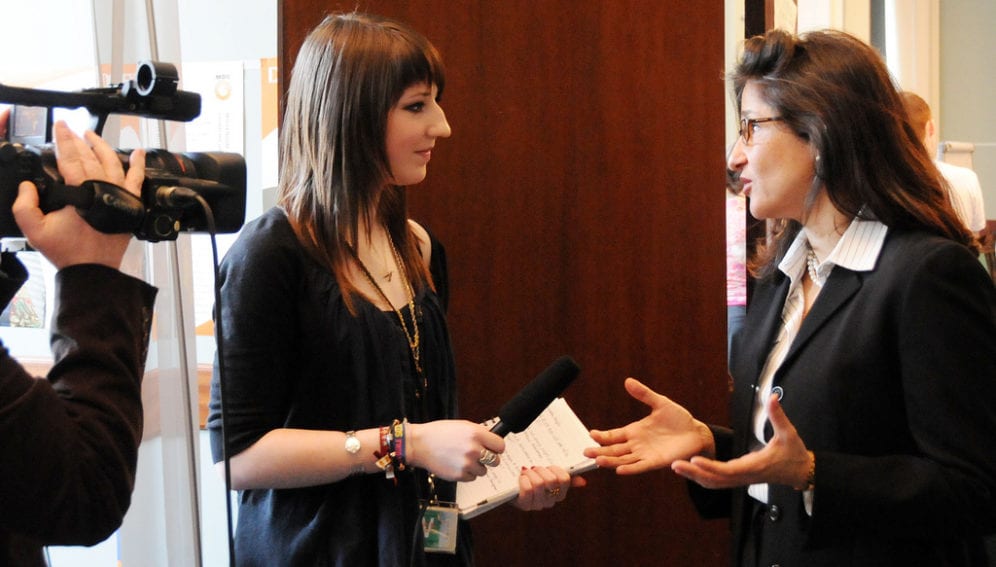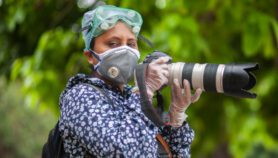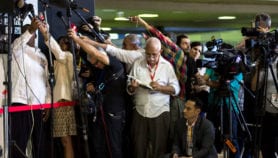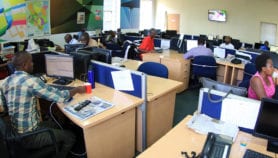By: Charlotte Owen
Send to a friend
The details you provide on this page will not be used to send unsolicited email, and will not be sold to a 3rd party. See privacy policy.
Proposals for science stories were underrepresented in a competition to encourage media coverage of development issues, according to the European foundation dedicated to improving journalistic standards that runs the contest.
The shortfall points to a gap between science and journalism that the European Journalism Centre (EJC) aims to bridge with a new programme.
Less than ten per cent of total entries in the Innovation in Development Reporting Grant Programme were science based, Wilfried Rütten, the centre’s director, tells SciDev.Net. “We were looking for more science-led stories,” he says.
“There are not so many science writers to begin with. They are few and far between, especially in terms of development,” he adds.
The grant programme, which was launched in January with support from the Bill & Melinda Gates Foundation, aims to address a deficit in development reporting. Nearly 250 applications were submitted in the second round, and the 12 winners will share some €225,500 (nearly US$305,000) in funding for their projects.
The grant’s objective is to find innovative ways to explain global development issues and inform the public about topics centred on the Millennium Development Goals (MDGs), according to the EJC.
One of the few science-based entries to win a grant is a project by German science journalist Franziska Badenschier. Next year, she will present a radio series on five neglected issues not covered in the WHO’s list of neglected tropical diseases: antibiotic resistance, mental illness, nodding syndrome, traffic accidents and typhoid fever.
Other projects to receive funding will address issues such as the use of microcredits in the Democratic Republic of Congo; myths and misunderstandings about the MDGs; and large-scale landgrabbing by multinationals in rural West Africa.
Applicants must be affiliated with media organisations that target audiences in one or more of the eight European countries that provide the highest net official development assistance: France, Germany, Italy, the Netherlands, Norway, Spain, Sweden, and the United Kingdom.
Journalists from France, Germany, Italy and Spain dominated the latest contest, and will present their stories next year in major media outlets such as Le Figaro, The Guardian, El País and Die Welt.
At a time when many media organisations are suffering financial cutbacks, the grants are designed to help future-proof quality journalism, especially that on development.
Rütten says that currently there is “inadequate” media coverage of development.
Instead of targeting policymakers, the stories are envisaged to change public awareness of development issues, according to Rütten.
“First we need to show how great the stories are. Development is a great topic for stories; it is moving all the time. Greater coverage will generate interest and prove it is an exciting thing to be involved in.
In the long run, we are paving the way for development to be an essential part of reporting,” he says.
“We hope to make an impact on media coverage eventually,” Rütten says.
“If we have examples of great storytelling, then the newspapers will say this is worthwhile and there will be more coverage and therefore more awareness.”
The EJC plans to run two more rounds of grants next year.
The centre is also developing an independent programme designed to help address the deficit in science reporting in general.
“We are working on a similar project to get more science journalists on the road,” says Rütten. Further details of the initiative are due to be announced before the end of the year.
And, in January, the ECJ is set to run a free online data journalism course to teach participants how to use data to produce compelling stories, particularly with respect to science and development.














